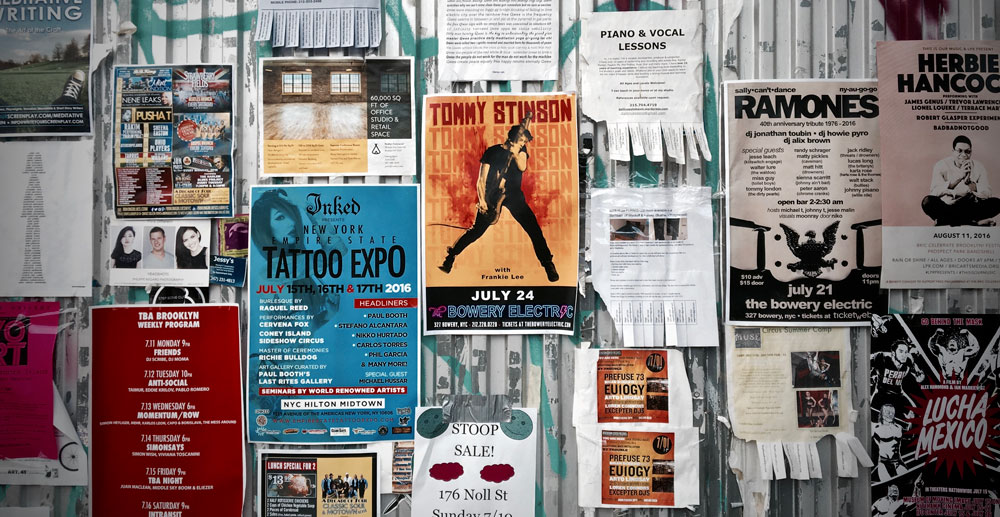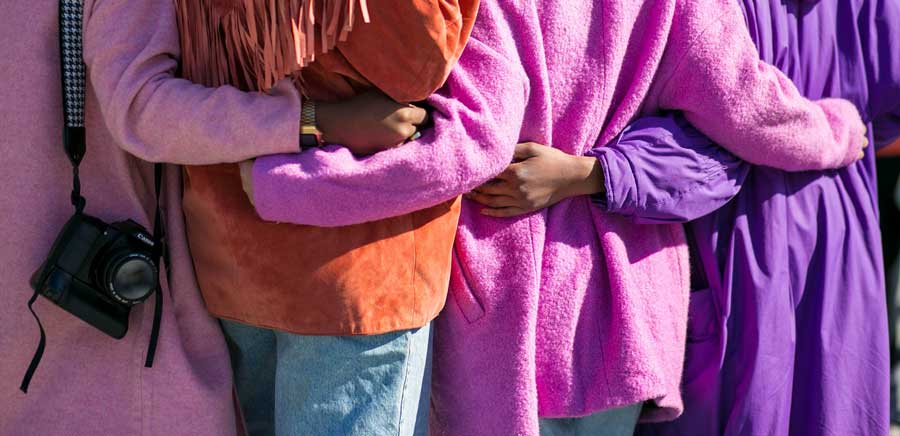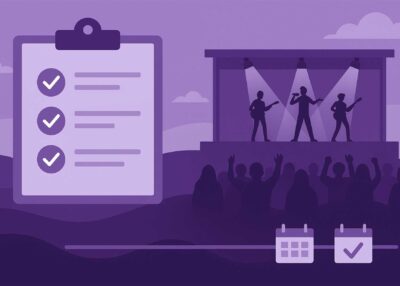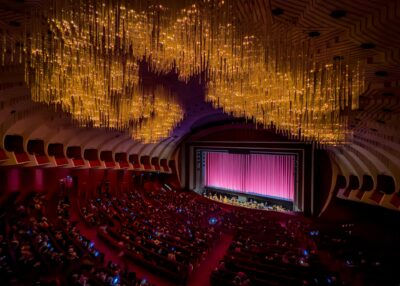Mastering the Art of Event Promotion: 8 Strategies Every Planner Should Know
In the pulsating heart of event planning is the crucial phase of promotion. Without a well-thought-out advertising strategy, even the most spectacular event could fall flat due to a lack of attendance. The essence of promoting an event effectively lies in understanding several core elements and creatively executing strategies to reach your potential attendees.
Whether you're organizing a local workshop or an international conference, the principles of advertising your event require a blend of traditional approaches, digital strategies, and a deep understanding of your target market.

Understanding the Basics: What Event Planners Need to Know First
Defining the Target Market: The first step in planning your event promotion is identifying your target audience. This step is foundational, as all your subsequent promotional efforts will be tailored to this specific group of people.
Consider demographics like
- age
- gender
- profession
- income level
- geographic location
- interests
- needs
- problems your event can solve for them!
Establishing Clear Goals: What is your event's objective? Goals could range from raising awareness for a cause, and networking opportunities, to direct revenue from ticket sales. Your advertising strategies should reflect these goals, providing a clear call-to-action (CTA) that resonates with your audience's motivations.
Creating a Comprehensive Plan: Every successful advertisement strategy thrives on a comprehensive plan that considers budget, timelines, chosen platforms, content creation, and analysis of advertising results. Ensure there's a balance between the scope of your event, the expected number of attendees, and the advertising mediums you select.
Crafting Your Advertising Strategies: 8 Ideas
With the basics in place, it's time to delve into the specific strategies that can propel your event into the limelight:
#1 Content Marketing: Content is king in the digital sphere. Start a blog related to your event, and create engaging and informative content that your target audience will find valuable. This approach could include behind-the-scenes posts, interviews with speakers or participants, or articles about the event's theme. Use SEO strategies to enhance your blog's visibility online.
Some of the top content marketing strategies used by event planners include:
-
Teaser Videos: Create short, exciting clips about your event to generate interest and share them on various social platforms.
-
Blog Posts: Write articles related to your event's theme, guest speakers, or activities, providing valuable information that helps create buzz around the event.
-
Email Newsletters: Send out engaging and informative newsletters to your subscribers, keeping them updated on event developments and behind-the-scenes content.
-
Social Media Countdowns: Initiate countdown posts leading up to the big day, highlighting different aspects of the event, like key speakers, sessions, or exclusive offers.
-
Infographics: Design infographics with compelling statistics or facts related to your event that encourage shares and engagement.
-
Interactive Content: Utilize polls, quizzes, or Q&A sessions online to engage potential attendees and keep the event top-of-mind.
-
Influencer Partnerships: Collaborate with industry influencers to share your content or provide guest posts or videos to reach a wider audience.
-
Webinars/Online Workshops: Host informative sessions related to your event topic, giving a preview of the kind of value attendees will get from the main event.
-
User-Generated Content: Encourage past participants or potential attendees to share their own content, like testimonials or expectation posts, using a dedicated event hashtag.
-
Press Releases: Craft and distribute press releases about major event announcements, ensuring your event gets coverage on various media platforms.
-
Live Streaming: Share live videos of the event preparations or snippets from past events, bringing real-time engagement.
-
Podcast Interviews: Feature on or host podcasts with guest speakers or influential personalities discussing topics surrounding your event, adding value, and piquing interest.
-
SEO Content: Optimize all your content with relevant keywords to ensure that potential attendees can easily find your event online when searching for related topics.
-
Contests and Giveaways: Run online contests with the chance to win free tickets, VIP passes, or other related prizes, incentivizing shares and engagement.
-
Behind-the-Scenes Content: Show what goes into the making of the event with backstage footage, planning and setup phases, or interviews with the team, building a human connection with your audience.
#2 Email Campaigns: Despite the advent of numerous marketing channels, email remains incredibly effective. Use personalized email campaigns to reach out to your potential audience. Segment your email list to deliver more targeted content and updates about your event.
Remember, consistency without spamming is key.
#3 Social Media Blitz: Platforms like Facebook, Twitter, LinkedIn, and Instagram are invaluable for event promotion. Create event pages, use targeted ads, post regular updates, and engage with your audience. Go live with behind-the-scenes footage as you prepare for the event, create countdowns, and use platform-specific features (like Instagram Stories or Twitter Spaces) to keep the buzz alive.
Advertising your event effectively involves reaching your audience where they spend most of their time: on social media platforms. Here's a list of the top social platforms where you should consider promoting your event, each catering to specific demographics and offering unique features for event advertising:
-
Facebook:
- Ideal for a wide range of demographics.
- Use targeted Facebook ads, create event pages, or share updates on your business page.
-
Instagram:
- Great for a younger audience and visual content.
- Share eye-catching photos, behind-the-scenes stories, or short video clips using Instagram Stories or IGTV.
-
LinkedIn:
- Perfect for professional and B2B events.
- Promote your event through LinkedIn ads, publish informative articles, or create networking groups.
-
Twitter:
- Effective for real-time engagement.
- Use relevant hashtags, engage in public conversations, or start Twitter chats to create buzz around your event.
-
TikTok:
- Ideal for reaching a younger demographic with entertaining content.
- Create fun, engaging short videos, or challenge participants with event-themed hashtags.
-
YouTube:
- Suitable for in-depth video content and a wide audience.
- Share promotional videos, speaker interviews, or previous event highlights.
-
Snapchat:
- Targets primarily a younger demographic.
- Create event-themed filters or share live updates to engage users.
-
Pinterest:
- Effective for visual representation and inspiration, targeting a largely female user base.
- Pin your event flyers, photos, or thematic inspiration boards.
-
Reddit:
- Good for niche audiences and community engagement.
- Participate in relevant subreddits or host Ask Me Anything (AMA) sessions for detailed discussions about your event.
-
Clubhouse or Twitter Spaces:
- Ideal for live audio engagement, discussions, and networking.
- Host rooms with topics related to your event, featuring your event speakers or industry experts.
#4 Influencer Partnerships: Collaborating with influencers in your industry can help tap into their follower base, lending credibility and a broader reach to your event. These influencers could be keynote speakers at your event or simply assist in promoting it through their channels.
#5 Press Releases and Media Outreach: Traditional media outlets are still impactful, especially for local events. Send out press releases to newspapers, radio stations, and television networks related to your event's niche. Getting your event details in community calendars or local news segments can significantly boost your visibility.
-
Press Releases: Write compelling press releases about your event’s unique aspects, major attractions, or big announcements and distribute them to media outlets related to your industry.
-
Media Partnerships: Establish partnerships with media organizations for coverage. In exchange, offer them exclusive content, interviews, or branding opportunities at your event.
-
Influencer Collaborations: Collaborate with industry influencers to leverage their follower base. They can create authentic content to promote your event, or even attend the event themselves for live interactions.
-
Guest Articles: Pen thought-leadership articles or blogs and publish them in reputable industry magazines, websites, or general news outlets to gain visibility among relevant audiences.
-
Press Conferences: Host a press conference to announce significant news about your event, such as a major speaker, sponsor, or activity that’s noteworthy for industry journalists.
-
Community Engagement: Get involved with local communities or groups to spread the word. Engage in community service, local meetups, or forums that resonate with your event's theme.
-
Media Kits: Prepare media kits with high-resolution images, important press releases, FAQs, and notable quotes about your event. Make it easily accessible for journalists and influencers covering your event.
-
Exclusive Invites: Offer exclusive invites to select journalists and influencers for a special experience or early access, giving them a first-hand experience to share with their audience.
-
Social Media Takeovers: Allow influencers, speakers, or notable guests to take over your event’s social media for a day. They can share unique content, behind-the-scenes looks, or their personal journey to the event.
-
Podcast Appearances: Appear on popular industry podcasts to talk about your event, share personal insights, and discuss its impact on the industry or community.
-
Post-Event Reports: Publish detailed post-event reports highlighting success metrics, standout moments, testimonials, and media coverage. It helps in creating lasting impressions and building credibility for future events.
-
Award Submissions: Submit your event for industry awards. Being nominated or winning an award can significantly raise your event's profile.
-
Speaker Engagements: Utilize your speakers or performers. They can promote the event during their other engagements or interviews, providing authentic, third-party endorsements.
-
Behind-the-Scenes Content: Share behind-the-scenes content or teasers with media partners, creating exclusive pre-event promotional material that they can share with their audiences.
-
Crisis Management Plan: Be prepared with a crisis communication plan. Knowing how to handle negative situations swiftly and professionally preserves your event’s reputation.
#6 Leveraging Event Listing Platforms: Websites like Meetup, and even community forums and boards are excellent places to list your event. These platforms cater to individuals actively seeking out events to attend, thereby placing your event directly in front of interested attendees.

#7 Community Engagement: Engage local communities, clubs, and groups aligned with your event's theme. Offer group discounts or incentives for early bird registrations to encourage block bookings, enhancing your event's reach within these communities.
#8 Analytics and Feedback: Utilize web and social media analytics to understand which promotional content is performing well and why. This insight allows for real-time adjustments to strategies, ensuring resources are not wasted.
After the event, gather feedback through surveys to understand what worked and what didn't, helping refine future advertising efforts.
Adapting to Different Event Types
Remember, there's no one-size-fits-all approach. Different events necessitate different strategies. For example, a business conference might benefit significantly from LinkedIn promotions and industry influencer partnerships, while a local art workshop might gain more traction through Instagram visuals and community engagement.
Advertising an upcoming event successfully is a meticulous blend of strategy, understanding your audience, creativity, and analysis. In today's digital age, event planners are equipped with numerous platforms and tools to maximize reach and interest. However, the human touch remains integral. Engaging with potential attendees, understanding their needs and expectations, and receiving feedback makes the difference between hosting an event and creating an unforgettable experience. By harmonizing traditional methods with innovative digital marketing strategies, event planners can set the stage for not just one successful occasion, but many more to come.






